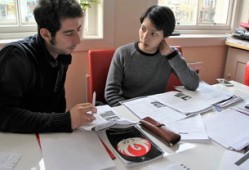耒阳英语培训学校
- 科普
- 2024-05-19
- 912
Title: Exploring Early Childhood English Education in Leiyang
Introduction

Early childhood education lays the foundation for a child's linguistic, cognitive, and social development. In Leiyang, like many other regions, early childhood English education is gaining prominence due to its role in preparing children for a globalized world. Let's delve into the key aspects of early childhood English education in Leiyang.
1. Curriculum and Pedagogy
The curriculum for early childhood English education in Leiyang typically focuses on introducing English through interactive and playbased activities. Language acquisition at this stage is primarily through immersion and repetition. Teachers often use songs, games, storytelling, and visual aids to engage young learners. The emphasis is on developing listening and speaking skills, with gradual introduction of reading and writing as children progress.
2. Qualified Teachers
Qualified teachers play a crucial role in early childhood English education. In Leiyang, educators are required to have a solid understanding of early childhood development and language acquisition theories. They often undergo specialized training programs to effectively teach English to young learners. Additionally, proficiency in English language is essential for teachers to provide authentic language models to the children.
3. Parental Involvement
Parental involvement is encouraged in early childhood English education in Leiyang. Parents are seen as partners in their child's learning journey. Schools may organize workshops or provide resources for parents to support English language learning at home. Regular communication between teachers and parents ensures alignment in teaching approaches and reinforces language learning outside the classroom.
4. Technology Integration
Technology is increasingly integrated into early childhood English education in Leiyang. Educational apps, interactive whiteboards, and multimedia resources are used to supplement traditional teaching methods. However, careful consideration is given to the age appropriateness of technology and ensuring it enhances rather than replaces handson learning experiences.
5. Cultural Sensitivity
Cultural sensitivity is an integral aspect of early childhood English education in Leiyang. While introducing English language and Western culture, educators also value and respect the local culture and traditions. Teaching materials often incorporate elements of Chinese culture to create a balanced and inclusive learning environment.
6. Assessment and Evaluation
Assessment in early childhood English education in Leiyang is primarily formative and observational. Teachers assess children's language development through informal observations during activities and interactions. Portfolios, checklists, and anecdotal records may be used to document progress. The focus is on understanding each child's individual strengths and areas for improvement rather than standardized testing.
Conclusion
Early childhood English education in Leiyang prioritizes creating a nurturing and stimulating environment where children can develop English language skills alongside their holistic development. Through a playbased curriculum, qualified teachers, parental involvement, technology integration, cultural sensitivity, and appropriate assessment practices, Leiyang is paving the way for young learners to thrive in an increasingly interconnected world.
上一篇
苏州儿童早教机构有哪些
下一篇
考研国家线4月中旬公布
















